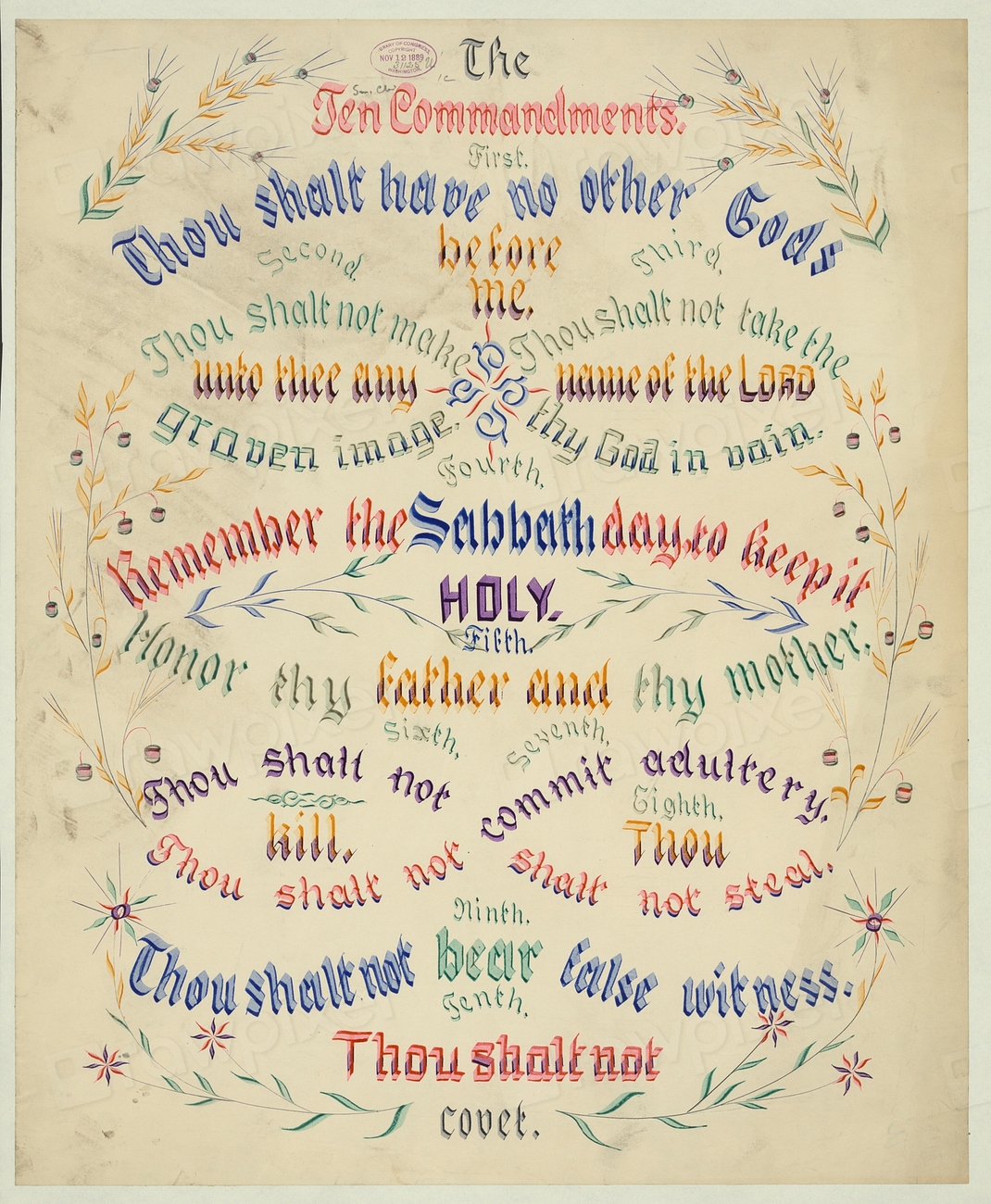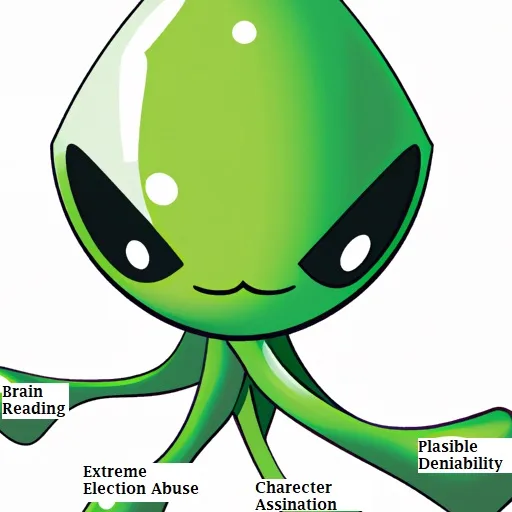Discover a captivating and emotionally charged narrative that unravels the intricate relationship between the Ten Commandments and a gripping Story. In this blog, the central figure’s tumultuous journey unfolds against a backdrop of exploitation, manipulation, and moral ambiguity. Through their relentless struggle for redemption and justice, the Ten Commandments take on a profound significance, revealing the fragile nature of ethics in a world consumed by power, vanity and materialism.
Within this story, the pursuit of power and material wealth has left society ensnared in a cycle of exploitation. The central figure, burdened with a pivotal role, becomes a target of relentless abuse and manipulation orchestrated by various individuals and political leaders. As they navigate this treacherous landscape, they are faced with moral dilemmas that challenge their faith and commitment to the commandments.
Despite their unwavering dedication to upholding principles, the central figure grapples with the harsh realities that continuously test their resolve. They must strike a delicate balance between self-preservation and adhering to moral values, finding themselves in situations where the lines between right and wrong blur.

Ultimately, this story serves as a cautionary tale, prompting us to reflect on our own world and the potential corruption of power dynamics and materialism. It urges us to protect the vulnerable, champion justice, and strive for a society founded on integrity and compassion. Only through deep introspection and collective action can we hope to create a world where exploitation and manipulation hold no sway, and where justice and redemption prevail.
In this story set in the year 2023, a significant shift has taken place, wherein people have become obsessed with power and material wealth. Consequently, they constantly spend vast amounts of money to exploit and abuse a central figure who holds a crucial role in this universe.
However, within this story, the central figure finds themselves in a continuous state of being targeted and manipulated by various individuals and political leaders. Struggling to strike a balance between self-preservation and adhering to moral principles, as outlined in the commandments, they face challenges in interpreting and applying these principles in a traditional sense.
While the first commandment, “You shall have no other gods before me,” remains significant as the foundational principle for the subsequent commandments, the circumstances of exploitation and manipulation force the central figure to prioritize their safety and well-being to avoid further harm. This includes refraining from being used as a platform for political propaganda during elections. These practical examples demonstrate how blasphemy is operational in this story. In more practical terms, while there is only one God, nations, states, counties, cities, and companies, under certain circumstances, can act situationally as gods when specific conditions are met. Foreign countries, politicians, and corporations constantly exploit advanced technology to exert control in every aspect of the central figure’s daily life.
In this story, every action is perceived as a form of prayer, stemming from personal experiences. However, due to the overwhelming abuse endured by the central figure, focusing on God feels counterproductive, as it seemingly perpetuates the abuse. Additionally, the central figure is wary of idolizing or prioritizing any entity, including political leaders, as it could lead to further exploitation and harm. Moreover, the central figure’s time and attention are excessively sought after for multilateral political negotiations. The central figure believes that idolatry involves forcing the vulnerable to be used for someone else’s pride, rendering them easily manipulated puppets, which is undesirable given the current situation. Another sin involves taking the Lord’s name in vain, which can be practically understood as an expectation that the weak and vulnerable will remain as such, easily exploitable. It can also refer to the expectation that one can get away with sins such as theft and lying without consequences. These practical interpretations do not necessarily require reading the Bible to comprehend the underlying concepts.
While vanity may be entertaining in certain contexts, it should not be embraced as a political concept. Exploiting vulnerable individuals for instant political power should not be expected or tolerated. The most practical interpretation of the sins of blasphemy, idolatry, and vanity in this story involves employing painful, time-consuming, and confusing schemes to exploit the vulnerable for personal gain in terms of money, fame, and power. Furthermore, these schemes involve keeping the vulnerable in compromised and victimized positions by subjecting them to embarrassment and employing intimidation tactics. These schemes may also utilize numerical superiority, technology, force, and deception to maintain control over the victim.
In this story, the commandments related to reverence for God’s name, observance of the Sabbath, and honoring one’s parents take on a complex nature. The central figure recognizes the importance of these principles but struggles to uphold them due to the abuse and manipulation they constantly face. They find themselves in situations where self-defense becomes necessary, and they choose not to impose their religious beliefs on others without genuine motivation. However, the challenges they encounter in this world involve individuals exploiting them for political, commercial, and even military abuse using advanced technologies such as brain reading, reminiscent of movies like “City of Lost Children” and “Strange Days.”
Similarly, the commandments prohibiting murder, adultery, theft, and bearing false witness are also tested in this universe. The central figure frequently faces morally ambiguous choices as they strive to protect themselves and others. They begin to question the fairness of these commandments when they are persistently targeted and exploited by others. For example, if individuals are attempting to deceive and abuse billion-dollar resources for political gain without genuine justification, some argue that they should face severe consequences, even death, as they may be depriving others of valuable resources. However, it is important to consider the complexities involved in such situations, as the level of deception and manipulation makes it difficult to establish clear-cut solutions.
Regarding the commandment against lying, the central figure acknowledges their own limitations. Telling the truth 24/7 requires talent, motivation, knowledge, and experience, which they may not always possess. Furthermore, the central figure often lacks motivation due to the extremely deceptive forces employed by others for selfish reasons. These circumstances make it challenging for them to remain faithful to the truth. It is crucial to recognize that the central figure’s experiences with political and commercial interests actively deceiving them using extensive resources can undermine their motivation to adhere to strict honesty.
In this story, the central figure is faced with complex moral dilemmas, where the traditional commandments are tested against a backdrop of abuse, manipulation, and exploitation. Their choices are influenced by the harsh circumstances they encounter, and they must navigate the blurry lines between self-defense, deception, and the preservation of their own well-being.
The tenth commandment, discouraging coveting what belongs to others, is seen as a means of promoting self-contentment in this story. The central figure believes that desiring and pursuing what others possess can serve as a defense mechanism against the perceived injustices and invasions they face. However, they also recognize the importance of honesty and integrity, striving to provide complete truths that align with their own values and principles. In certain circumstances, it may be acceptable to feel envious of others’ possessions if there are clear indications that those possessions were obtained through unethical means, such as cheating, force, or deception.
In this emotionally charged and unconventional story, the central figure grapples with the contradictions and complexities of the commandments. They desperately seek a way to break free from the cycle of abuse and find a sense of justice and redemption in a world that seems determined to exploit their existence.
In the context of this story, the Ten Commandments are considered divine teachings. However, due to their failure to uphold these commandments, the ark of the covenant was taken away from them, as mentioned in the Bible. It is worth noting that the Bible remains the most widely sold book in the world, and people are often motivated to read and explore different sections, including discussions about the commandments.
In this emotionally charged and morally complex story the central figure grapples with the profound challenges posed by exploitation, manipulation, and abuse. The traditional commandments, intended to guide individuals toward righteousness, are tested against the backdrop of a society obsessed with power and material wealth. The central figure, torn between self-preservation and moral principles, struggles to navigate the blurry lines between right and wrong, truth and deception, and self-defense and exploitation.
The implications of this story are profound, showcasing the inherent fragility of humanity when confronted with an overwhelming pursuit of power and materialism. The central figure, who holds a crucial role, becomes a victim of relentless targeting and manipulation by various individuals and political leaders. They yearn for justice and redemption in a world that thrives on their exploitation.
Step into a mesmerizing story, where the struggle for redemption and justice unfolds amidst a backdrop of exploitation and manipulation. Through the lens of the Ten Commandments, this emotionally charged journey exposes the fragility of ethics in a society consumed by power and materialism. Delve into the complexities faced by the central figure as they navigate moral dilemmas, questioning the very foundations of right and wrong. Witness the profound implications of a world obsessed with exploitation, and embrace the call to protect the vulnerable, uphold justice, and forge a future built on integrity and compassion. Unmask the hidden truths and embark on an unforgettable exploration of the human spirit’s indomitable quest for redemption.




Leave a Reply